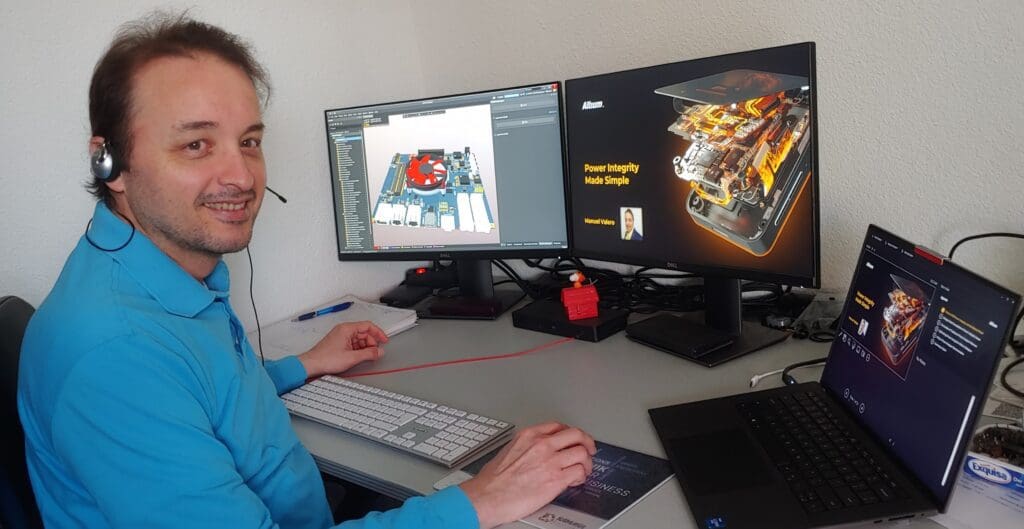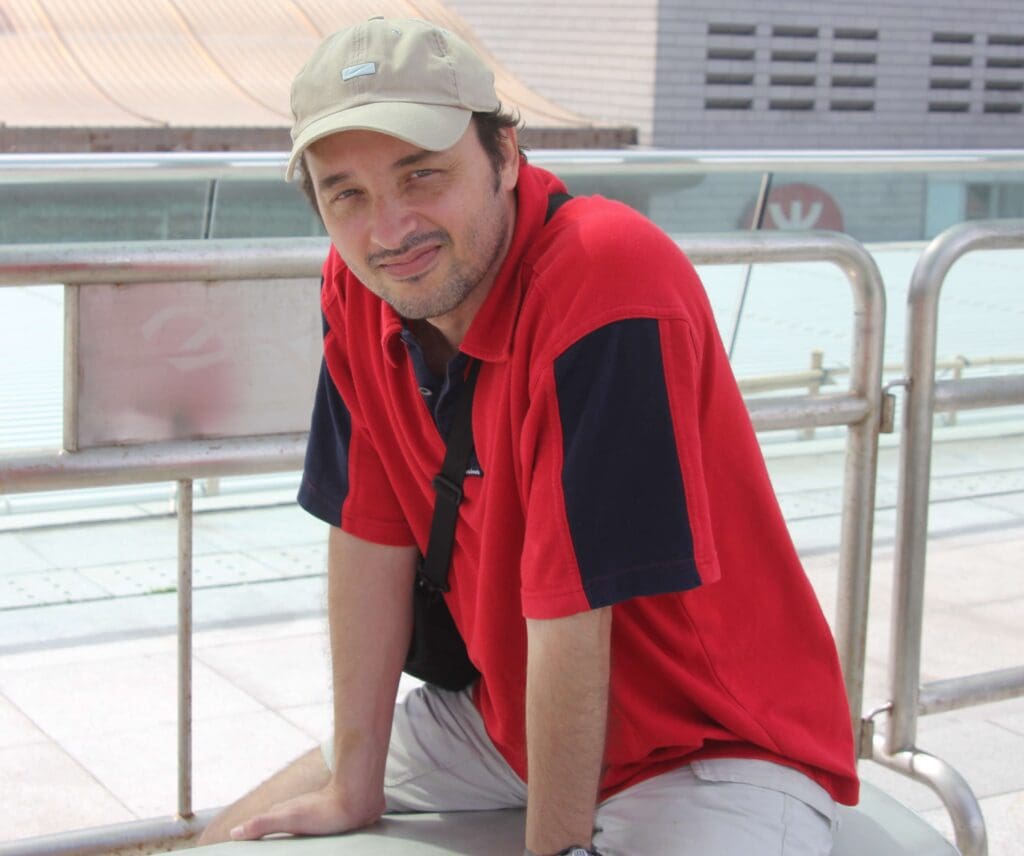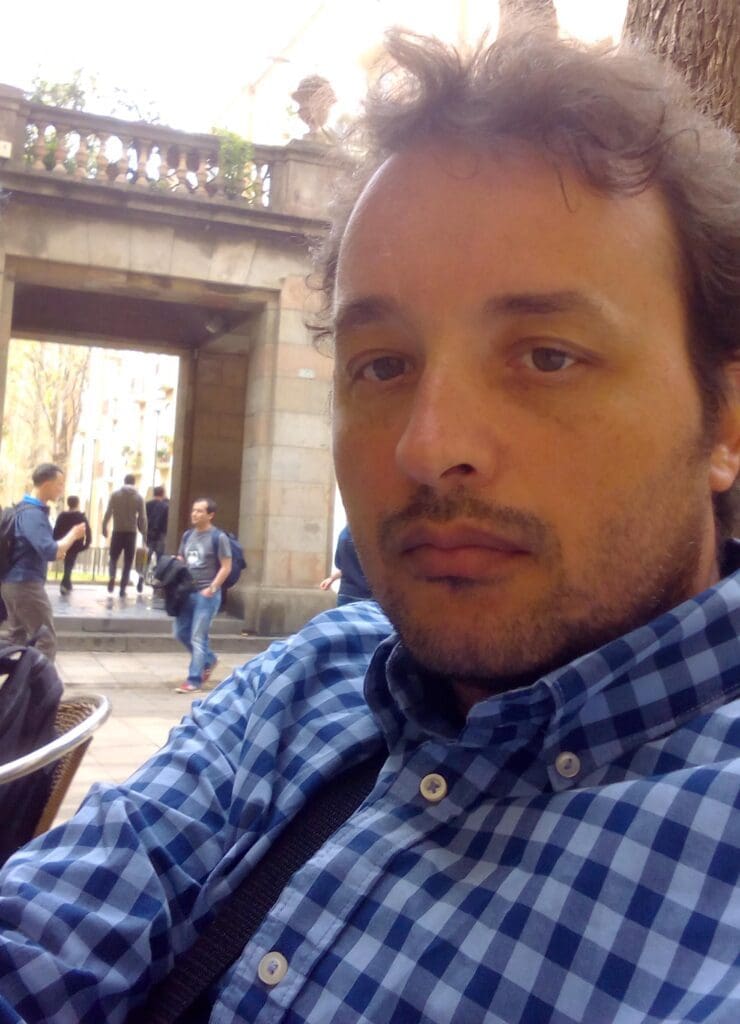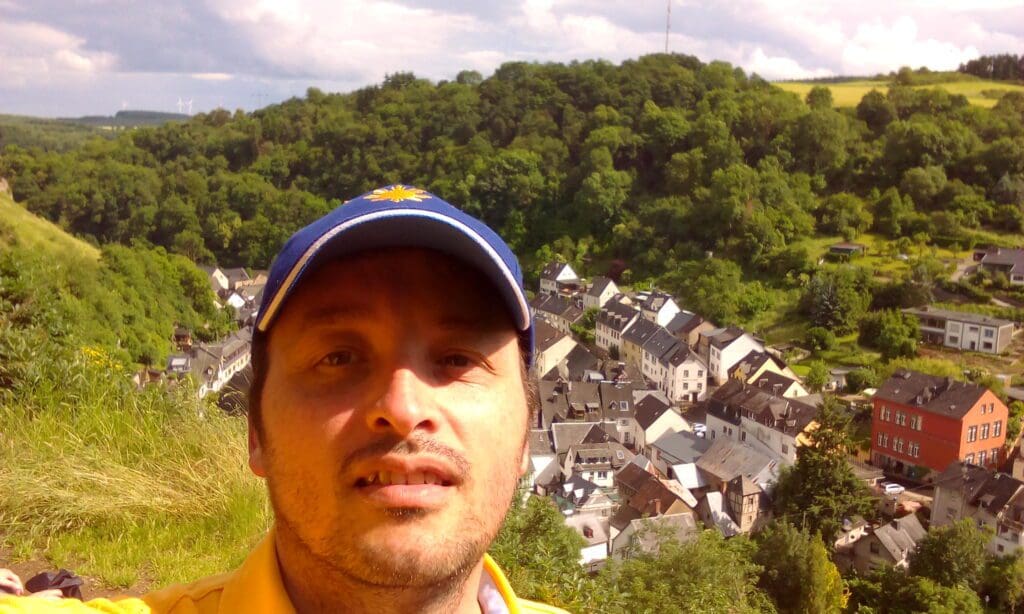The life of a Technical Sales Engineer for Altium
Manuel Alberto Valero Uribe grew up in Mexico, studied Electronic Engineering, speaks four languages and is now living and working in Bavaria in Germany. He has worked in different engineering roles as well as in marketing and sales. Manuel now works for Altium as a Technical Sales Engineer.
Manuel Alberto Valero Uribe – Technical Sales Engineer for Altium PCB design tools


Background
Could you give a brief description of your background and what led you to study electronic engineering?
The most compact answer I can give is that it was most probably genes. My father took an electronics course from the Hemphill Schools, before WWII, when he was young. (I received all the documents that the school mailed to my father, when I was around 15 years old). However due to family constraints, he could not go on. There are several other electronics professionals in my mother’s family as well; so, it is very strong in several of us, even for some of the women in the family and naturally me. I have liked this profession since I can remember.
Childhood
Were there any childhood interests which were a factor?
That is for sure!
I did not just like to play with Meccano sets, cars and so on; but also fixed my sisters’ dolls in exchange for the mechanical and electrical innards. Then I used to connect them to batteries, switches and to bring some nice twists to those Meccano sets, like making cranes to lift other toys.
I suppose that was a kid’s version of an investigation in this field. It took me some time to understand how the proper connections were made as I naturally created some short circuits that achieved the “correct” function of the switch to turn on and off the motor. However that was because I just connected the motor, battery and switch in parallel, effectively creating a short circuit; I was around 5 years old back then.
Learning about electronics
When I was around 12 years old, I also made a small DC electric motor using all the tools that my father had around. (He was a mechanical engineer, so we had a lot of tools and material at home). To make the motor, I used one of my electric motors removed from toys as a model.
I badly wanted to study an electronics technical career when I was a teenager, but that was not possible due to several factors. So I started spending my afternoons and evenings in the local library, reading all the material about electronics that I could find. I had been repairing electronic toys (video game consoles such the Atari, small RC cars and also some tape/radios were amongst the most typical devices) for some years at that point. So, I used the money I got from that to buy the material I required to go on with my electronic “studies”.
Around that time, I took on the repair of one of our family pick-up car radios that had been lying around for some months. This was something I accomplished to the great surprise of my father and older brother. Around that time I received all the electronics related material my father had (including that Hemphill Schools course).
Many more things happened back then, but I will save those to avoid boring you.
Inspiration
Has there been a particular person who inspired you in your early career or childhood?
I suppose that was my father, who asked me not to touch the soldering iron, the multimeter and other similar things, when I was a small child (maybe 5 years old). Naturally I used those tools when he was not at home but was very careful.
I am not the oldest sibling, so what I used to find, was mostly pieces of some things, like the leftovers of those Meccano sets, so I had to be really creative.
There was no science teaching in Mexican schools back then and I think that most of today’s schools don’t have it either. On top of that, I was born in a relatively small city and we moved around similar and smaller cities in the south east of Mexico due to my father’s job. Because of this, I just followed my wish to learn electronics and that gave me a focus, a clear objective and kept me out of most of the troubles associated with the teenage years.
Typical day as a Technical Sales Engineer for Altium


What exactly does your role include and what’s your typical day like?
Solving mostly technical problems is a big part of this. Whether it is a colleague, or a customer, we receive questions and help/support requests. These can arrive via email, phone, chat, etc.
Usually, performing demonstrations of the platform is also a big part of this as well. These are videocall sessions with sales colleagues and customers where we have to show how the tool works and “live” demonstrations of the functions the customers are most interested in.
For me personally, around a week a month, sometimes more; I have to translate the presentations for the three webinars I present each month. This involves preparing scripts and practicing the demonstration parts (we mostly present new or improved features, so it is a continuous learning process).
There is a mix of other things that might include:
calls with customers, or with colleagues,
various meetings with sales and the T.S.E. (Technical Sales Engineering) group,
preparing internal demonstrations,
preparing and attending different events (virtual and physical) for customers,
etc.
Customers
How many customers do you work with? Which industries do you work with?
My normal duties include all the customers from Italy, Spain, Portugal, around half of Germany (we are looking for a German Technical Sales Engineer). As well, I provide some support to our Latin American reseller partners. Given my intercultural and language skills, I do provide help to other departments’ colleagues as well, but this does not happen too often.
Any customer within the mentioned regions is my responsibility and I do not count them, but there are hundreds of them. The customers work in various industry fields; electronics is used for a lot of things.
Travel as a Technical Sales Engineer for Altium
How much travel do you do and how do you maintain a work life balance?
The pandemic brought a lot of changes to that, so I do not travel that often here. So far, I have travelled twice in Germany during the year that I have been working at Altium. However, for my other two previous positions, that happened more often despite the pandemic; even to cover events like the power electronics and applications exhibition PCIM in Nuremberg or the space industry exhibition Expo Space in Bremen.
I have a saying for work-life balance:
“I will go above and beyond my duties, but not over my work time”.
Even if I do not really follow that one hundred percent of the time, I try to do it. This has been particularly hard in my current position as I had to jump in to cover part of the D.A.C.H. region, which brought a lot of extra work for me. I also feel like I am some sort of “wild card” at Altium.
Remote Working
How much of your time is ‘in the field’ and how much is remote?
Altium changed that time distribution during the pandemic and has kept it like that. So, I am not sure what it was like before, but there was more travelling involved. Right now, this is a home based job and I’d say I travel only around 2% of the time.
I receive job offers from talent seekers and companies regularly. That is why I know that not every company is comfortable offering remote work easily, some offer hybrid solutions. I will not get into details this time, but one of the things the pandemic has shown, is that many jobs can be done perfectly well with a lot of remote working. Naturally, human interaction is required sometimes, and there are jobs that require physical presence. However, there are big advantages as well. For example, the drastic reduction in contamination/passing infection comes to mind.
The Organisation
Which other people/departments give you support? (e.g., sales, software, quality, field applications engineers)
This role is intended to give support to sales only. However, I also provide support to the reseller partners, sometimes directly to customers and from time to time to other groups such as renewals and training.
The marketing department prepares most of the presentation material for us, but I have to prepare some base material for them as well.
How commercial do you need to be?
Not much.
My main task is to present the product in its best light to the customer and show them how it can solve their problems. The commercial aspect is handled by my sales colleagues. Normally, during a session with a customer or prospect, I ask one of my sales colleagues to be present to answer the commercial questions.
My personal style is to base the professional relationship with the customers on trust. I don’t like and don’t believe in cheating or telling lies and I must admit that this makes it hard sometimes to work with some sales people.


Most challenging part of the job of a Technical Sales Engineer for Altium
What do you find most challenging when you are working?
Demonstrating new functionalities is probably one of the toughest parts in my current job. This usually involves learning new things, preparing a useful demonstration and also translating it into more than one language.
Before I came to Altium, I hadn’t used ECAD tools for a while. Often, we are given just a few days to prepare a presentation of a new feature. That is naturally without forgetting to take care of the day to day work. This has put a lot of pressure on me several times, even requiring me to work ten to twelve hours per day several times to reach the timeline.
What has been your most challenging issue to date?
The most challenging has always been to startup a new company, make it self-sustainable and then profitable in the shortest amount of time. I have seen a lot of things in around 40 years in this profession and nothing gets close to that, but the reward is usually immense as well.
Problem solving when working as a Technical Sales Engineer for Altium
What do you do when a problem seems unsolvable? (What is your method for tackling it?)
We have a saying in Spanish:
“Everything is solvable, except for death”.
But that aside, there are “unsolvable” problems. Most of the time this can be related to resources (required expense), time, a better or cheaper solution, etc. It is important to know how to recognize these types of situations. However, one very important thing I learnt in my own small businesses is to avoid quitting when the problems are tough; this is the best way to learn. Not everyone has the same talent, but we all can persevere.
Breaking big problems into smaller pieces works quite well for me. It is also possible to become blocked on an aspect of the problem and misunderstand the real causes of it, that usually derives into an endless loop of unfruitful attempts. When this happens, I stop working on that problem and go to something else to let the creative part of my mind to work on it in the background. This works quite well for me. It works so well, in fact, that I have received “input” from that side whilst asleep, while I was dreaming.
I normally try to consider a problem from many aspects and try to get very creative to find the best solution; you know, think outside of the box. Logical thinking is a main part of an engineer’s education.
Culturally speaking, most Latin Americans have to develop highly ingenious and creative solutions to problems. Sometimes we don’t have access to the right tools or resources, that really helps to develop ingenuity.


Further reading
A Gas Power Generation Sales Engineer – meet Kelechi Amadi Ahunanya.
Paul Gatto – A day in the life of a Med-Tech Field Sales Engineer.
John DeFiore – a Field Applications Engineer for Texas Instruments in California.


Responses